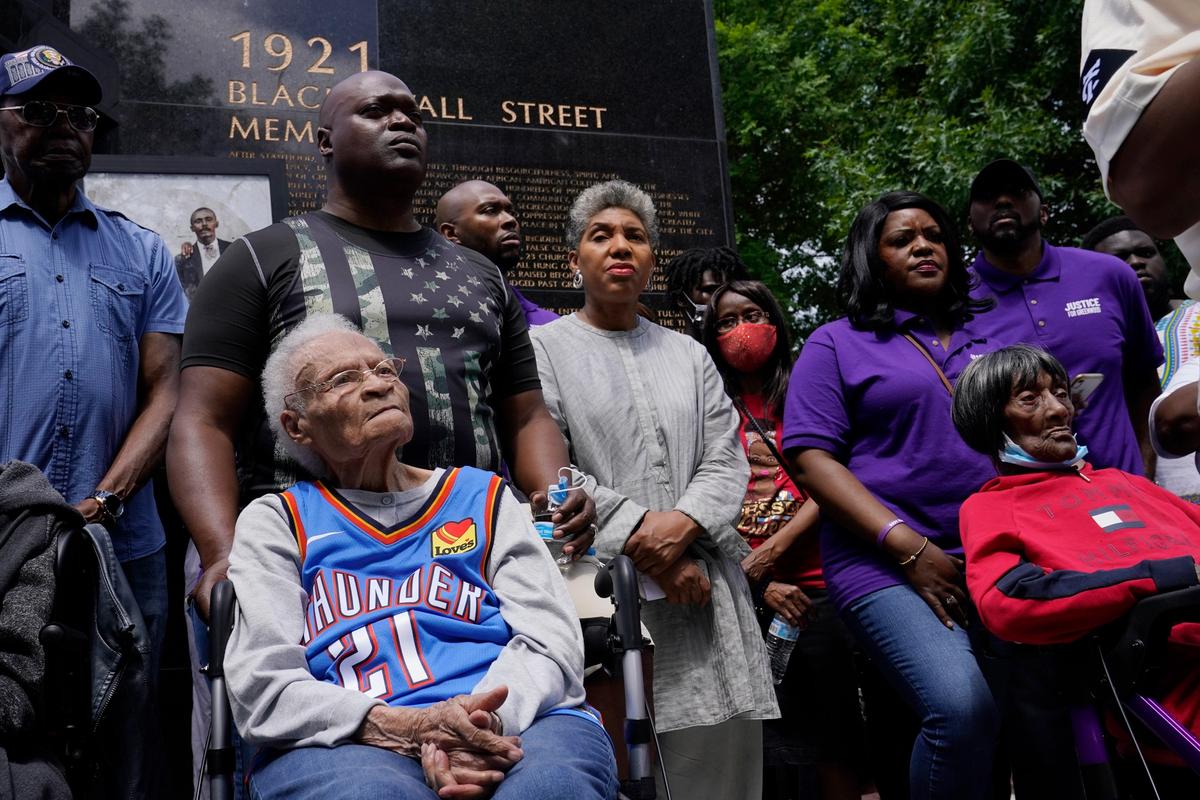The unveiling of the $18.2m museum Greenwood Rising in Tulsa, Oklahoma, was met with controversy this weekend, as its high-profile opening event was cancelled amid a dispute over reparations for the survivors and descendants of the massacre.
In a letter, Damario Solomon-Simmons, the attorney for the survivors and descendants, asked that the new museum allot 33% of its raised revenue for reparations, and claims that the Oklahoma senator Kevin Matthews, who leads the Tulsa Race Massacre Centennial Commission, has challenged the credibility of survivors and delayed the process to provide them justice.
The letter asks that the commission give the three living Tulsa Massacre survivors—Viola Fletcher, Leslie Randle and Hughes Van Ellis—$1m each. It also asks the commission to pledge $50m toward funding for the descendants of survivors and for improvements of the Greenwood District.
The Tulsa Race Massacre, a historic example of domestic terrorism, in which mobs of white men murdered and injured countless Black citizens and burned down Black-owned businesses in the city’s Greenwood District, has been described by contemporary historians as the “single worst incident of racial violence” in the US.
Several artists and institutions are recognising the event and its fallout through displays and projects, including the Greenwood Rising museum, which includes permanent installations and archival materials, as well as an immersive installation that recreates the sounds and scenes of the riot.
US President Joseph Biden travelled to Tulsa to commemorate the massacre on Tuesday, visiting displays at the Greenwood Cultural Center and meeting privately with the survivors. “Some injustices are so heinous, so horrific, so grievous, they cannot be buried, no matter how hard people try,” Biden said in his remark remembering the event. “Only with truth can come healing.”


